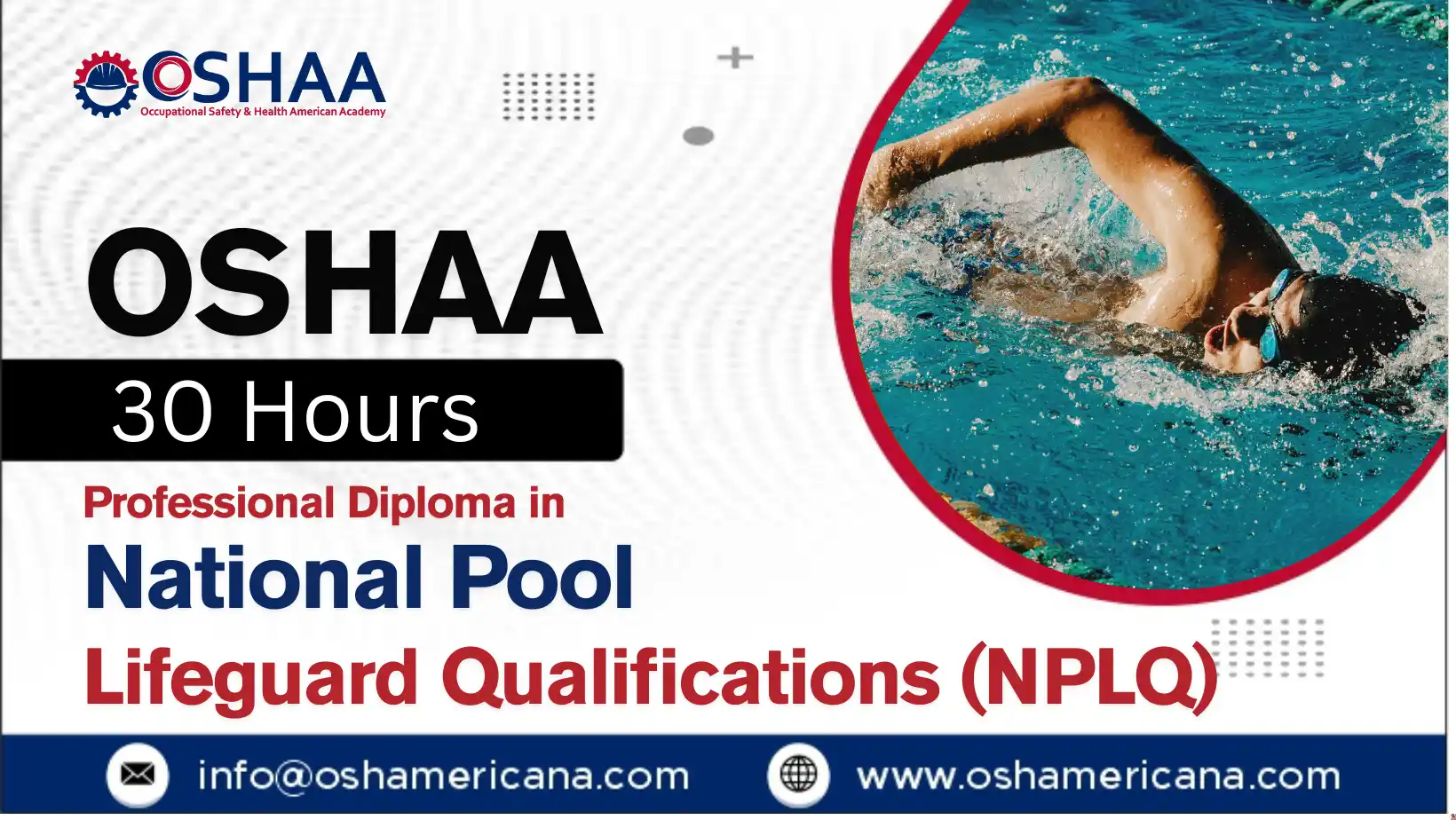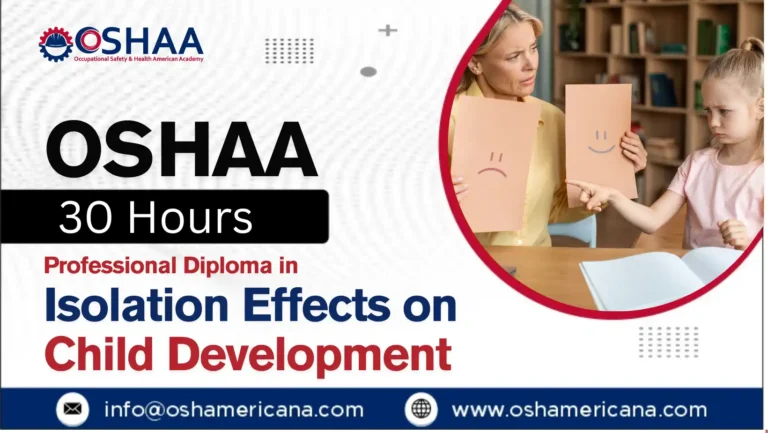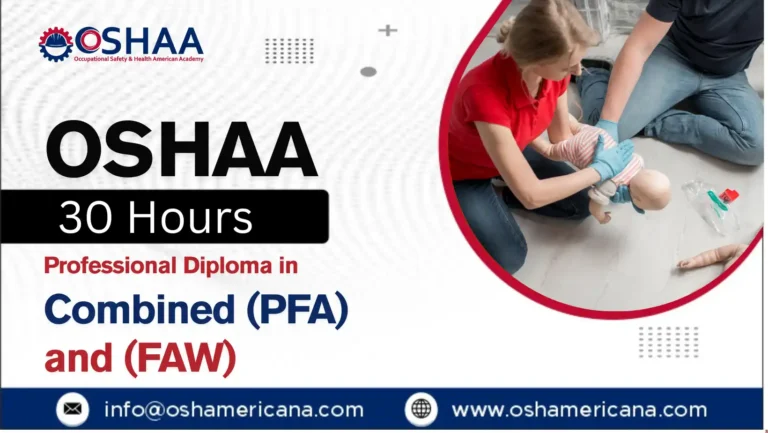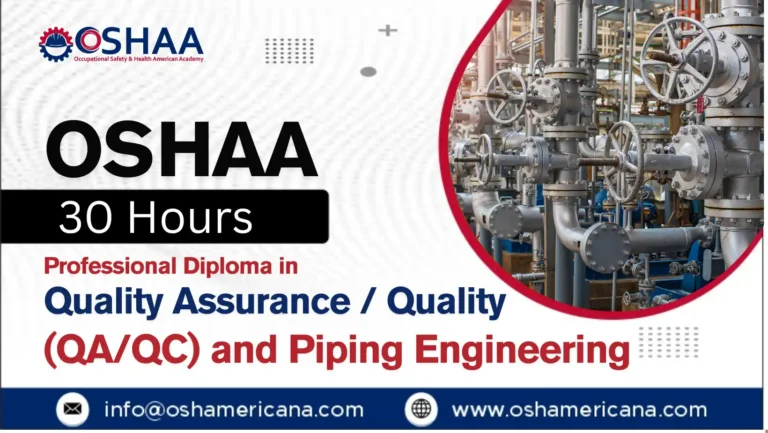Professional Diploma in National Pool Lifeguard Qualifications (NPLQ) – Professional Pool Safety Leadership Training
The OSHAA 30-Hours Professional Diploma in National Pool Lifeguard Qualifications (NPLQ) is a professionally structured training programme designed to prepare participants for the responsibilities of pool lifeguarding with confidence and competence. Developed in accordance with recognised safety and rescue standards, the diploma equips learners with the essential skills required to maintain safe pool environments and respond effectively to emergencies.
This programme combines theoretical knowledge with practical training to ensure well-rounded lifeguard capability. Participants are trained in water rescue techniques, cardiopulmonary resuscitation (CPR), first aid, pool supervision, and incident prevention. Practical drills and realistic scenario-based exercises allow learners to apply their skills in controlled yet challenging situations, building readiness for real-life poolside incidents.
A strong focus is placed on preventive lifeguarding, teaching participants how to identify hazards, monitor swimmer behaviour, and implement safety measures to reduce risks before incidents occur. The course also develops communication, teamwork, and customer service skills, recognising the importance of professional interaction in public safety roles.
Successful completion of the OSHAA 30-Hours Professional Diploma in National Pool Lifeguard Qualifications (NPLQ) enhances employment opportunities across leisure centres, hotels, water parks, and aquatic facilities. Graduates leave with the confidence, practical expertise, and professional standards expected of modern pool lifeguards, supported by OSHAA’s commitment to quality and industry relev
OSHAA 30-Hours Professional Diploma in National Pool Lifeguard Qualifications (NPLQ)
Study Units
Learning Outcomes
Introduction to National Pool Lifeguard Qualifications and Industry Standards (2 Hours)
- Understand the scope and objectives of the National Pool Lifeguard Qualifications (NPLQ).
- Recognise the importance of adhering to national and international lifeguard standards.
- Identify the key competencies required for professional lifeguard practice.
Roles, Responsibilities, and Professional Conduct of a Pool Lifeguard (3 Hours)
- Define the primary duties and responsibilities of a pool lifeguard.
- Apply professional conduct and ethical behaviour in lifeguarding activities.
- Demonstrate awareness of accountability and workplace discipline.
Pool Safety Operations and Hazard Identification (5 Hours)
- Conduct routine pool safety checks and operational inspections.
- Identify and assess potential hazards within pool environments.
- Implement preventive measures to reduce risks and enhance safety.
Surveillance Techniques and Incident Prevention Strategies (3 Hours)
- Apply effective observation and monitoring techniques.
- Recognise early warning signs of potential incidents.
- Develop proactive strategies to prevent accidents and emergencies.
Water Rescue Skills and Safe Recovery Techniques (4 Hours)
- Perform various water rescue methods for different emergency scenarios.
- Apply safe approaches to recover and assist individuals in distress.
- Use rescue equipment effectively and appropriately.
Cardiopulmonary Resuscitation (CPR) and First Aid Essentials (5 Hours)
- Perform CPR for adults, children, and infants according to current guidelines.
- Apply first aid techniques for common aquatic-related injuries and medical conditions.
- Respond confidently to life-threatening emergencies.
Emergency Response Procedures and Incident Management (4 Hours)
- Activate and follow emergency action plans.
- Coordinate with other responders during an incident.
- Manage post-incident procedures, including reporting and documentation.
Communication Skills and Team Coordination in Lifeguarding (2 Hours)
- Use clear and effective communication in emergency and non-emergency situations.
- Work collaboratively with team members to ensure efficient operations.
- Handle interactions with the public in a professional and reassuring manner.
Legal and Ethical Considerations in Lifeguard Practice (2 Hours)
- Understand legal responsibilities and liabilities of lifeguards.
- Apply ethical decision-making in lifeguard duties.
- Maintain confidentiality and respect for all individuals in the pool environment.
- Gain a recognised lifeguard qualification aligned with national and international safety standards.
- Develop advanced skills in water rescue, CPR, and first aid for aquatic environments.
- Enhance ability to identify hazards and implement effective prevention strategies.
- Build confidence in responding to emergencies and managing incidents professionally.
- Improve communication, teamwork, and coordination skills essential for lifeguarding roles.
- Increase employability in swimming pools, leisure centres, hotels, resorts, and water parks.
- Acquire knowledge of legal and ethical responsibilities within lifeguard practice.
- Receive practical, scenario-based training to ensure readiness for real-world situations.
- Strengthen professional conduct and work discipline in safety-critical environments.
- Achieve a qualification respected and recognised by employers across the aquatic and leisure industry.
- Participants seeking to begin a professional career as a qualified pool lifeguard.
- Participants currently working in aquatic facilities who wish to upgrade their skills and qualifications.
- Participants aiming to work in leisure centres, hotels, resorts, water parks, or competitive swimming venues.
- Participants interested in developing strong water rescue, first aid, and emergency response capabilities.
- Participants pursuing internationally recognised lifeguard credentials to enhance global employment opportunities.
- Participants committed to ensuring safety, prevention, and high standards in aquatic environments.







